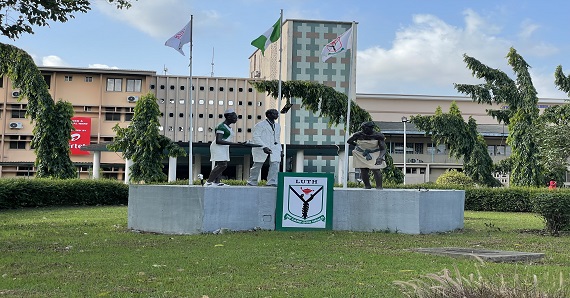The Lagos University Teaching Hospital, LUTH, has addressed reports that the health institution was plunged into darkness for days due to a power outage.
In a telephone chat, the Chairman of the Medical Advisory Committee, CMAC, Dr. Ayodeji Oluwole, confirmed a disconnection by EKO Electricity Distribution Company, EKEDC, over indebtedness.
However, he clarified that backup generators and solar power ensured minimal disruption to hospital operations.
Oluwole said, “Yes, it’s true that EKEDC disconnected the facility, I think they’re on revenue drive and their argument is that if you’re owing, they will just cut you off. But there is backup power in LUTH. The main problem is actually not even the hospital (LUTH), but more the College of Medicine.
“The College of Medicine, where there are the medical students, and LUTH are both interjoined for power supply, but the hospital has generators and solar power, and so, was not affected much. But the medical students, whose hostels are not backed up have not had light.
“However, power is back now, part of the bill has been paid and we are working out a plan with EKEDC to offset the balance. But power has been restored and there are generators and solar power on standby,” he averred.
The power cut primarily impacted the College of Medicine student hostels, which lack backup power. LUTH itself, with its generators and solar system, continued functioning largely uninterrupted. Oluwole acknowledged an outstanding electricity bill and confirmed partial payment. He assured that LUTH is working with EKEDC to settle the remaining balance.
On Friday, medical students staged a peaceful protest regarding the disconnection. Sources said the hospital management responded by making a N80 million payment on Thursday and an additional N50 million on Friday. Despite these efforts, a balance of N145 million reportedly remains.
Previously, LUTH relied on its power plant but transitioned to EKEDC due to cost concerns. The current debt situation highlights the ongoing challenge of managing electricity expenses in public facilities across the country.

